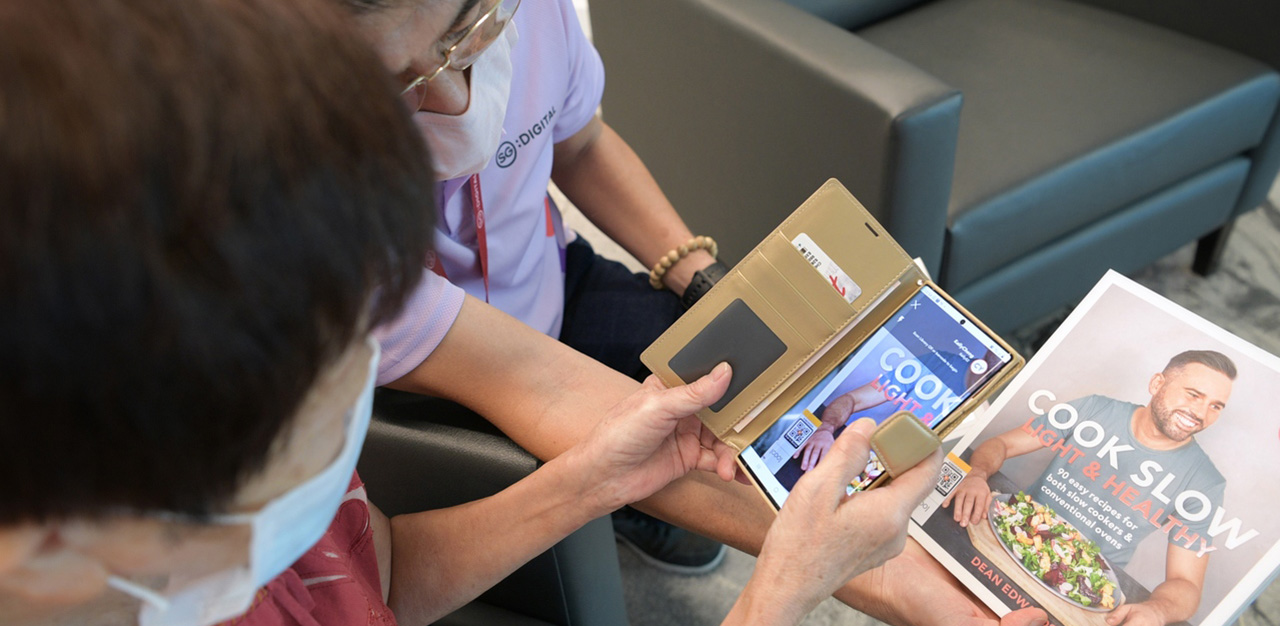(NOTE: Pseudonyms are used in this article to ensure the anonymity of all interviewees.)
Sitting in the living room of her one-room rental flat, 83-year-old Tan Bee Leng scrolls through the list of contact numbers on her smartphone, naming each of them to me: “This is my home nurse, this… my neighbour who lives downstairs, this one is a volunteer from the senior centre, my daughter…,” she accidentally dials a number, and it starts to ring. “Not again! I am going to get scolded. Why does this always happen? This phone is so sensitive, my fingers are too big, my eyesight is poor, that is the trouble for an old lady,” she sighs. In a tone of quiet resignation and frustration, Mdm Tan adds, “Smartphones are not for people like me.”
Encouraging seniors to ‘go digital’
Older adults like Mdm Tan have been encouraged by community providers to enrol in community-based digital literacy programmes after the Covid-19 lockdown measures eased last year in Singapore. Designed to provide seniors with subsidised smartphones and mobile plans, as well as to equip them with basic smartphone skills, these programmes are part of a nationwide push to bridge a digital divide made more pronounced by the pandemic.
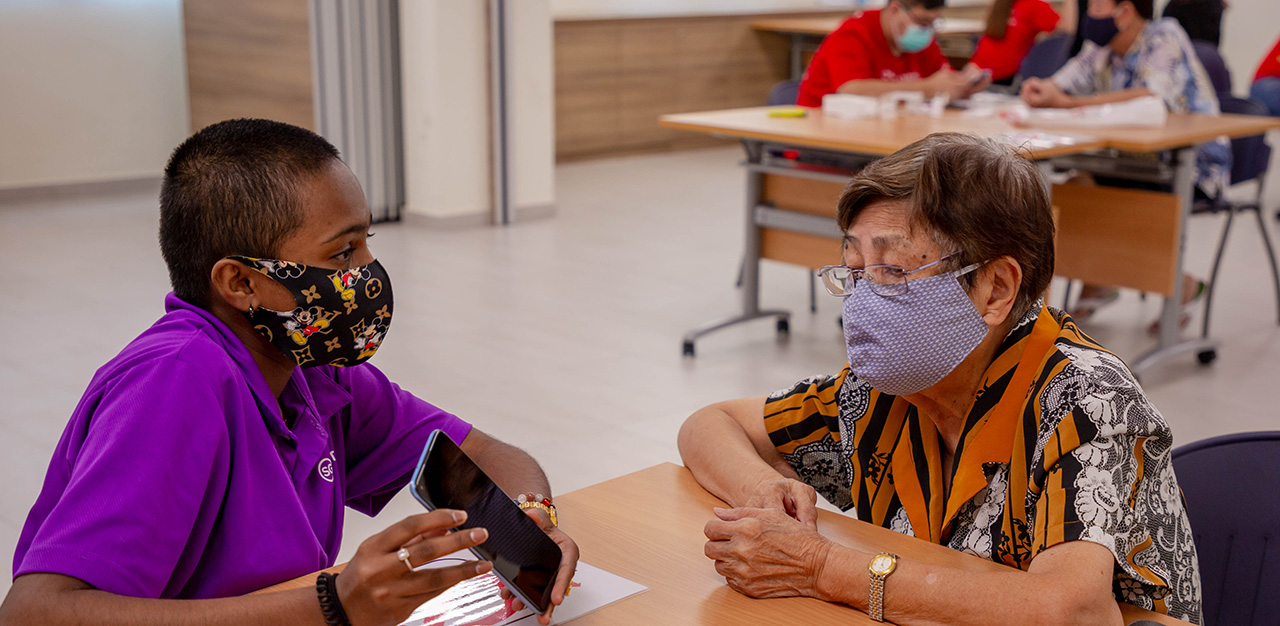
As the tech-savvy population swiftly turned to digital means to sustain social connections, keep up with public health guidelines, purchase necessities, and access telehealth during the implementation of strict social distancing measures in public spaces, governments and public health researchers worldwide grew concerned that older adults were disproportionately displaced in a digital world.
Multiple incidents of seniors contravening safe distancing rules circulated in the media, drawing critiques that this age group was being ignorant, socially irresponsible, and stubborn. Others countered that rather than ‘scapegoating’ vulnerable groups, we need to understand if the aged struggle to adhere to self-isolation may have stemmed from the inability to obtain information about the fast-changing social distancing rules, or a desire to maintain social connection in community spaces.
Studies have demonstrated the benefits of communication technology for older adults’ well-being during the pandemic. But, people aged 65 years and above are not homogeneous in their attitudes towards mobile technologies and social networking platforms. Research shows that those who are less affluent and educated, are often less likely to adopt such technologies. Yet, there is so much more we need to know about how vulnerable segments of a population’s older persons feel about the onslaught of technology in their lives, and so much more we must do to find ways to include them without stigmatising a ‘digital underclass’.
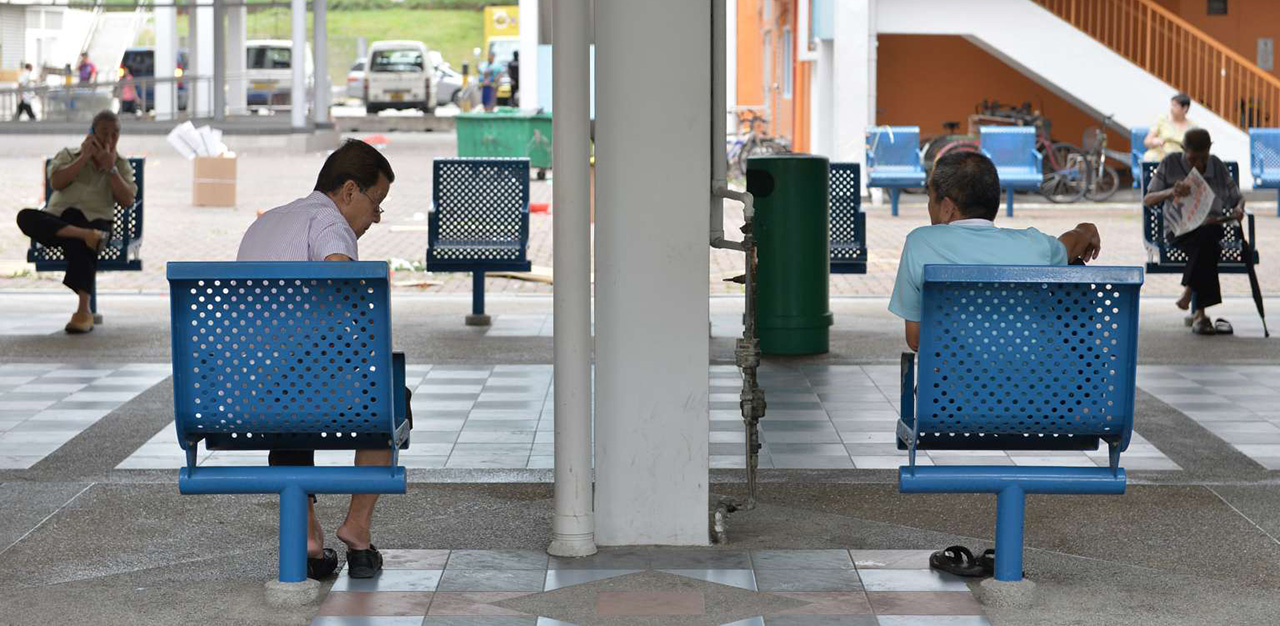
Hesitation towards smartphone use
I met Mdm Tan while doing research for my dissertation. I was keen to learn about how seniors residing in public rental housing neighborhoods, which are subsidised flats that cater to low-income households in Singapore, feel about these digital interventions. These seniors often live alone, have limited financial and social support and face higher risks of poor physical and mental health.
Surely, these smartphones must have changed their lives, I thought, only to have my naïve assumptions thrown out the window. The older adults I spoke to knew of the benefits of digital devices. Owning smartphones meant safety, convenience, and entertainment… so why were they ambivalent about jumping on the digital bandwagon?
My interviews revealed that anxieties and resistance towards technology stem from factors such as age-related cognitive and physical decline, which includes visual and hearing impairment, memory difficulties, decreasing agility in their fingers and the lack of age-friendly features. While font sizes and language settings can be adjusted for non-English users, older adults lamented that the words were still too small, the aesthetics of the screen and the presence of multiple applications were confusing to navigate.
A digital divide by class, not just age
What struck me profoundly, however, was how quick they were to point out that smartphone learning was not for older persons like them – less educated, non-English speaking and illiterate. They also felt that learning was unproductive because their minds were deteriorating, due to age and they did not want to burden others to teach them. Some described feeling demoralised because they could not recall what was taught and were fearful of pressing the wrong buttons.
Vulnerable older adults thus face a double whammy – their lack of confidence in learning stems not only from them having internalised society’s ageist stereotypes that portray seniors as slow, unadaptable, forgetful, and not technologically savvy, but feelings of incompetency also arise from perceived social and economic disadvantages, relative to other older Singaporeans.
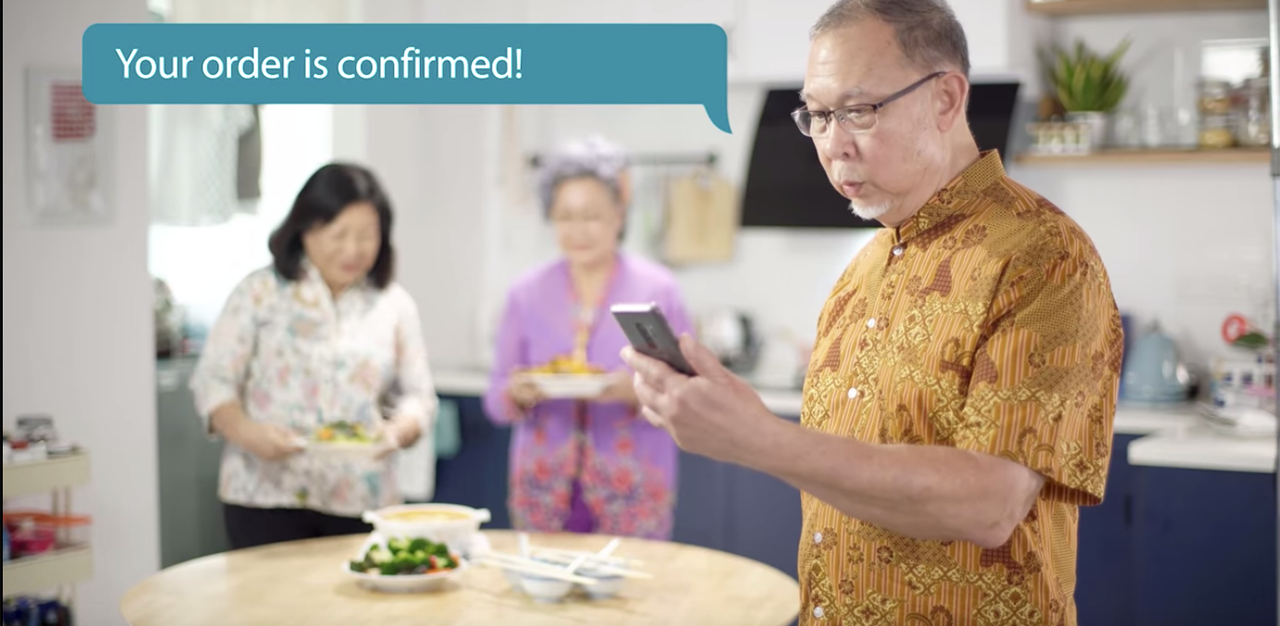
These observations are echoed in another study conducted with older Singaporeans aged 55 to 75 years old to understand how they perceive the use of communications technology. Focus group discussions and interviews with 135 participants from 2012 to 2014 revealed that older adults of lower socio-economic status were fearful of technologies because of a self-consciousness about their linguistic inadequacies and poor educational attainment. Limited exposure to technology in early life or past negative encounters also increased their discomfort around its use.
Through my interviews, I also found that older adults living in low-income settings faced competing financial and social stressors in their everyday lives. When I asked seniors what they learnt from partaking in digital literacy programmes or the benefits of smartphones in their lives, conversations often shifted to concerns about a lack of finances, health problems or frustrations about applying for assistance. Amid everyday priorities, why should learning a more complex digital device take precedence over other demands like the payment of bills or the anxieties around managing their health?
Older adults I spoke to had also established their own ways of living and coping that did not require the use of technology.
Tucked away in 78-year-old Lee Chong Teck’s closet is a newly purchased smartphone. “If anyone wants to call me, they know where to find me, I am at home all the time. If I need to call the doctor, I can use this,” he says, pointing to the dust-covered house phone that he has used for time immemorial.
Mr Lee adds: “I want my life to be as simple as possible, there is no space in my mind for learning complicated things”.
Teaching him how to use the smartphone, he says, was like teaching a “cow to climb a tree” – futile, unproductive, and disruptive to his routine. I ask older adults what living a healthy life means to them – most describe a desire to continue walking, seeing, and thinking clearly, “living day-by-day doing the things [they] enjoy”, goals that they think could be fulfilled even without digital devices.
Making digital inclusion socially inclusive
Digital tools should not be seen as silver bullets that can instantly tackle social isolation and empower seniors to live more fulfilling lives.
As digital initiatives continue to be rolled out in the community, we need to include older persons, particularly those from socially and economically disadvantaged groups, in the conversation.
We must ask older adults what their interests, goals and priorities are, and consider how digital devices can be meaningful and relevant additions to their daily lives. If they say that they value relationship-building and a sense of community, digital technology can serve as a medium in which they learn new skills or habits as part of a group, as well as cultivate new friendships.
Such activities, when conducted in-person, can also facilitate rich social exchanges, and promote feelings of togetherness. For example, a digital intervention in Europe designed a game that allowed older persons to team up with a partner to solve tasks like puzzles, drawing or reacting to stimuli on a touch screen tablet. Besides improving their digital skills, the game facilitated social interaction, enhanced cognitive and motor skills, and removed the intimidations of formal learning. Finding purpose in digital learning can help them see it as less of an unwelcome disruption.
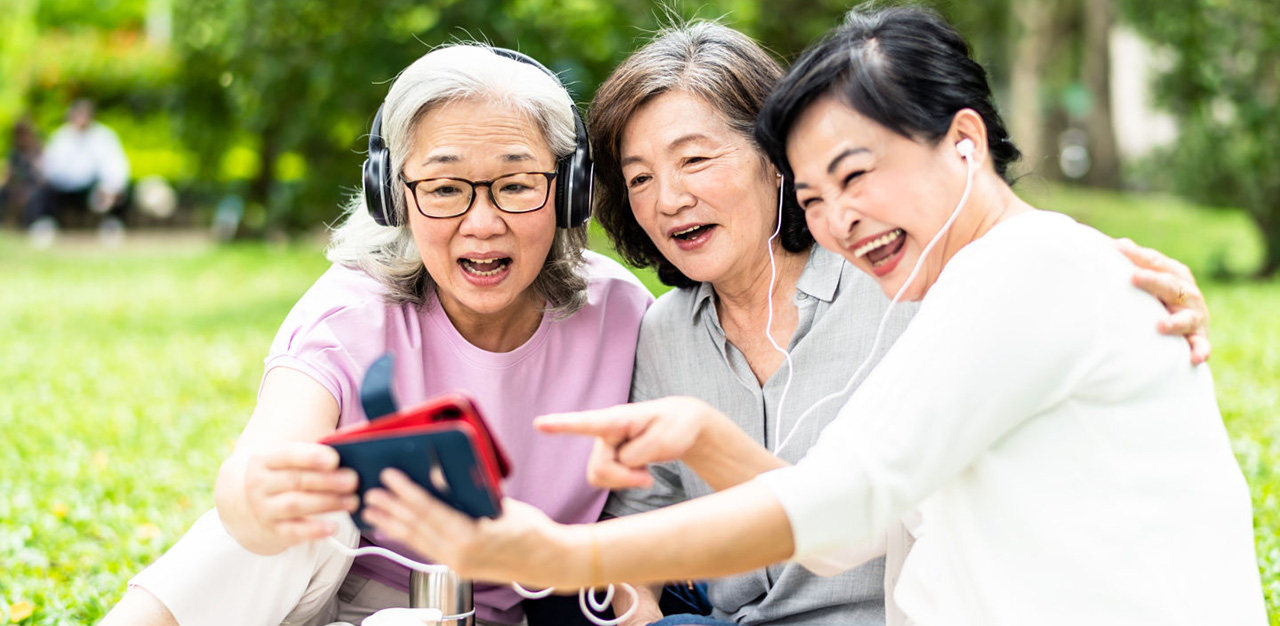
The next step is to recognise that our own prejudices and how we might have consciously, or not, furthered ageist stereotypes that have contributed to older adults’ resistance and self-judgment.
We need to speak in less impatient tones when our parents ask for help with their digital devices. A culture that recognises hesitancy to pick up digital skills and normalises mistakes in learning can create respectful, stress-free, and non-judgmental spaces for older adults to learn, without feeling like they are obliged or coerced to participate.
In this light, digital learning programmes should focus not only on imparting technical skills, but also addressing psychological barriers, including any fears or feelings of inadequacies that could hamper seniors’ motivation to learn. The responsibility of technological adoption should not be placed squarely on older adults to keep up with digital practices and stigmatise those who do not have the capacity or interest to do so. Ageist structures and stigma that valorise the experiences and skills of one group of seniors relative to others must be dismantled. For those who choose not to ride the digital wave, we must ensure that they are not left behind, and find ways to promote social connection, autonomy, and a good quality of life among these seniors.
We could continue reaching out to older adults like Mdm Tan and Mr Lee to ask how digital technologies can be weaved into their lives, in ways that make sense to them, and how we can help them build their confidence and interest in learning. They should not, however, be made to feel compelled to do so. We must embrace the many meanings of what makes for a ‘good life’ in old age, and they should be assured that their ways of aging successfully are just as valid, with or without digital technology.
Si Yinn Lu is a public health researcher passionate about understanding the social factors that drive health inequities, through centering the lived experiences of communities.
Join the conversations on TheHomeGround Asia’s Facebook and Instagram, and get the latest updates via Telegram.
